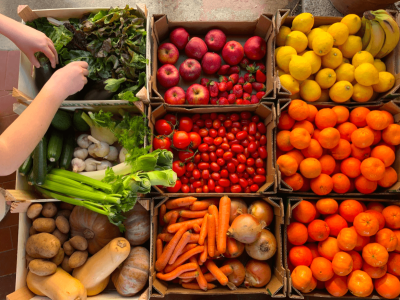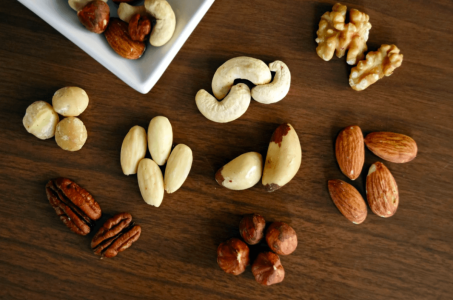Heart-Friendly Eating: Which food groups should you include?
- Replies 5
When it comes to our health, it's no secret that the food we eat has a significant effect on our bodies, but what about our heart, specifically?
According to the Australian Government Department of Health and Aged Care, 27% of deaths in the country are caused by heart disease, and at least 1.2 million Australians have been formally diagnosed with one or more heart conditions.
Factors such as obesity, high blood pressure, diabetes, and high cholesterol can all increase the risk of heart disease.
A recent study by Dr Luna Xu and her team at the University of New South Wales looked at how eating habits over a period of at least five years affect the risk of heart disease.
They looked at the diets of 70,273 people who had died from heart disease and compared them to a similar group of healthy people.
Findings revealed that eating a lot of red and processed meats over a long period of time increased the risk of heart disease by 23 per cent. On the other hand, eating a lot of fruits, vegetables, nuts, and wholegrains reduced the risk.

So, what does a heart-friendly diet look like?
According to the findings, make sure you're including these three essential food groups in your diet.
Fruit and vegetables
Eating fruit and vegetables is needless to say very helpful for you. They're packed with all sorts of goodies like vitamins, minerals, and antioxidants that can help keep your blood pressure in check, reduce inflammation, and keep your ticker in tip-top shape.
And let's not forget about all that fibre, which can help keep your cholesterol levels in line and reduce your risk of heart disease.
The best part? fruit and veggies are the ultimate diet helper. They're low in calories, which means you can enjoy a big helping without packing on the pounds.
Here are the ones you should put on your next shopping list:
Wholegrains
If you're feeling a bit sluggish and weighed down after meals, it may be time to switch up your diet and add some whole grains to the mix!
Whole grains, like oats, quinoa, and brown rice, are packed with fibre that'll help with digestion and keep blood sugar levels stable.
Whole grains also contain vital vitamins and minerals like magnesium and potassium that are crucial for keeping your heart in great shape. And if you're looking to lose a few kilos, switching to whole grains instead of refined grains (like moving from white bread to wholemeal) can also help with weight management.

Nuts
Eating nuts, such as almonds, cashews, and pistachios, can be a tasty way to give your heart the boost it needs! These little powerhouses are packed with healthy unsaturated fats that can help lower bad cholesterol levels and keep your heart at its best.
Not only that, but they're also loaded with antioxidants that can protect your heart from damage caused by those pesky free radicals. Not to mention the fact that fibre helps regulate blood sugar and reduce hypertension. And if you're watching your weight, a handful of nuts a day can help with that too.
So go ahead, grab a handful of your favourite nuts as a snack or toss them on your salad – it's a simple and delicious way to show your heart some love! Just make sure to choose unsalted or unsweetened ones to avoid cancelling out their heart-healthy benefits.

Taking care of our heart health as we age is crucial, and one way to do that is by incorporating healthier food groups into our diet. But that's not all that we should be doing!
Regular physical activity such as brisk walking, cycling, or swimming can also help keep our hearts strong and lower the risk of heart disease. Plus, it's a great excuse to get out and enjoy the beautiful outdoors!

Managing underlying health conditions such as high blood pressure, diabetes, and high cholesterol is also important. This includes taking medication as directed, keeping an eye on blood sugar levels, and making regular visits to the GP for check-ups.
In addition to lifestyle changes and managing underlying health conditions, older adults should also be aware of the signs and symptoms of heart disease, such as chest pain, shortness of breath, and fatigue.
If you experience any of these, you should seek medical attention right away. Regular check-ups with your healthcare provider can also help identify potential heart health problems early, so you can take prompt action and get the treatment you need.
Please keep in mind that the information provided in this article is of a general nature and should not be considered a substitute for professional medical advice.
It is important to consult with a qualified healthcare provider before making any changes to your diet or exercise routine. They will be able to provide personalised recommendations based on your individual health needs and circumstances.
Remember, self-diagnosis and self-treatment can be dangerous and may lead to unnecessary health risks. Always consult a medical professional if you have any concerns about your health.
We hope you found this article informative and helpful, members. Stay safe and healthy out there, and if you have any tips for heart-friendly recipes, share them below!
According to the Australian Government Department of Health and Aged Care, 27% of deaths in the country are caused by heart disease, and at least 1.2 million Australians have been formally diagnosed with one or more heart conditions.
Factors such as obesity, high blood pressure, diabetes, and high cholesterol can all increase the risk of heart disease.
A recent study by Dr Luna Xu and her team at the University of New South Wales looked at how eating habits over a period of at least five years affect the risk of heart disease.
They looked at the diets of 70,273 people who had died from heart disease and compared them to a similar group of healthy people.
Findings revealed that eating a lot of red and processed meats over a long period of time increased the risk of heart disease by 23 per cent. On the other hand, eating a lot of fruits, vegetables, nuts, and wholegrains reduced the risk.

Fruit and vegetables are full of beneficial nutrients which have been shown to improve blood vessel function and lower blood pressure. Credit: Pexels/Elimira Lotti.
So, what does a heart-friendly diet look like?
According to the findings, make sure you're including these three essential food groups in your diet.
Fruit and vegetables
Eating fruit and vegetables is needless to say very helpful for you. They're packed with all sorts of goodies like vitamins, minerals, and antioxidants that can help keep your blood pressure in check, reduce inflammation, and keep your ticker in tip-top shape.
And let's not forget about all that fibre, which can help keep your cholesterol levels in line and reduce your risk of heart disease.
The best part? fruit and veggies are the ultimate diet helper. They're low in calories, which means you can enjoy a big helping without packing on the pounds.
Here are the ones you should put on your next shopping list:
- apples, pears, oranges and other citrus fruits,
- green leafy vegetables,
- cruciferous vegetables (such as broccoli, cabbage, and cauliflower), and
- green and yellow vegetables (such as green beans, carrots, and capsicums).
Wholegrains
If you're feeling a bit sluggish and weighed down after meals, it may be time to switch up your diet and add some whole grains to the mix!
Whole grains, like oats, quinoa, and brown rice, are packed with fibre that'll help with digestion and keep blood sugar levels stable.
Whole grains also contain vital vitamins and minerals like magnesium and potassium that are crucial for keeping your heart in great shape. And if you're looking to lose a few kilos, switching to whole grains instead of refined grains (like moving from white bread to wholemeal) can also help with weight management.

To get the most out of nuts for your heart health, avoid buying salted or sugar-coated ones. Credit: Pexels/Marta Branco.
Nuts
Eating nuts, such as almonds, cashews, and pistachios, can be a tasty way to give your heart the boost it needs! These little powerhouses are packed with healthy unsaturated fats that can help lower bad cholesterol levels and keep your heart at its best.
Not only that, but they're also loaded with antioxidants that can protect your heart from damage caused by those pesky free radicals. Not to mention the fact that fibre helps regulate blood sugar and reduce hypertension. And if you're watching your weight, a handful of nuts a day can help with that too.
So go ahead, grab a handful of your favourite nuts as a snack or toss them on your salad – it's a simple and delicious way to show your heart some love! Just make sure to choose unsalted or unsweetened ones to avoid cancelling out their heart-healthy benefits.
Key Takeaways
- Obesity, high blood pressure, and high cholesterol are all risk factors for heart disease; however, following a heart-healthy diet can help mitigate these issues.
- Experts encourage Australians to increase their intake of whole grains, vegetables, fruit and nuts, and to lower their intake of red or processed meats where possible.
Regular physical activity such as brisk walking, cycling, or swimming can also help keep our hearts strong and lower the risk of heart disease. Plus, it's a great excuse to get out and enjoy the beautiful outdoors!

Regular workouts, even as basic as jogging or brisk walking, can lower your risk of heart disease. Credit: SHVETS production.
Managing underlying health conditions such as high blood pressure, diabetes, and high cholesterol is also important. This includes taking medication as directed, keeping an eye on blood sugar levels, and making regular visits to the GP for check-ups.
In addition to lifestyle changes and managing underlying health conditions, older adults should also be aware of the signs and symptoms of heart disease, such as chest pain, shortness of breath, and fatigue.
If you experience any of these, you should seek medical attention right away. Regular check-ups with your healthcare provider can also help identify potential heart health problems early, so you can take prompt action and get the treatment you need.
Please keep in mind that the information provided in this article is of a general nature and should not be considered a substitute for professional medical advice.
It is important to consult with a qualified healthcare provider before making any changes to your diet or exercise routine. They will be able to provide personalised recommendations based on your individual health needs and circumstances.
Remember, self-diagnosis and self-treatment can be dangerous and may lead to unnecessary health risks. Always consult a medical professional if you have any concerns about your health.
We hope you found this article informative and helpful, members. Stay safe and healthy out there, and if you have any tips for heart-friendly recipes, share them below!







